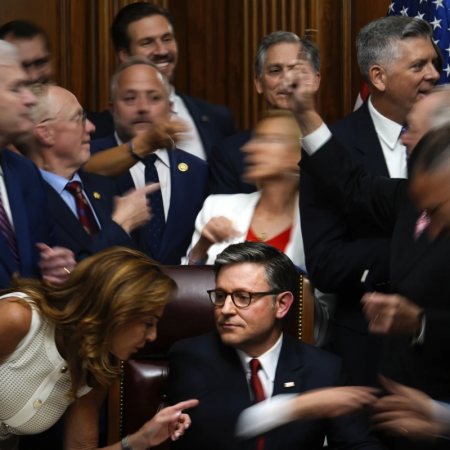New bill aims to reimburse homeowners for flooded basements
In 2021 and 2023, parts of Southeast Michigan were inundated with rain. This led to storm and sewer water backing up into thousands of homes in Detroit, Dearborn and Dearborn Heights.
Those cities did provide some financial relief, but federal money was largely hard to come by.
Now, the Fix Our Flooded Basements Act seeks to provide federal disaster relief for basements. Currently, the Federal Emergency Management Agency (FEMA) doesn’t cover damage to basements or mold and mildew mitigation.
Congresswoman Rashida Tlaib (D-MI) introduced the bill along with Congresswoman Ayanna Pressley (D-MA) and Congresswoman Shontel Brown (D-OH).
“Water damage can ruin electrical systems, destroy heating and cooling systems, damage foundations and create long term health effects,” Tlaib said. “Especially the exposure of mold. It’s the biggest concern for many of us.”
The bill would also allow people to purchase flood insurance that would cover basement backups.
“The bill will also expand eligibility for FEMA group flood insurance policy,” Tlaib said. “It’s super important to ensure that FEMA would cover mold, mildew and moisture damage in basements.”

Donna Givens Davidson is the president and CEO of the Eastside Community Network.
Aging infrastructure on Detroit’s East side has led to basement flooding even from smaller storms, especially in the areas around the canals in the Jefferson-Chalmers neighborhood. Givens Davidson says passing this bill would be a measure of justice to Detroiters.
“This bill brings us closer to addressing the cumulative impacts of racist public policy over the years in places like the east side of Detroit,” Givens Davidson said. “It’s where senior citizens, where low-income people, are already living in homes they cannot afford to repair.”
Candace Aaron lives in the Franklin Park neighborhood. She remembers the nightmare of helping her father after the flooding.
“There was a lot of water damage, mold damage to the windows, damage to some of the foundation on the house, the roof,” Aaron said. “So I went and applied for FEMA to see what services my father would be able to receive.”
It turns out the nightmare of the flooding turned into one of bureaucracy.
Aaron’s father was denied mitigation services, but eventually received limited help.
“It wasn’t enough to cover the damage,” Aaron said. “It was very extensive in the basement and on the outside of the home. So I think that this bill would do better.”
As for the chances of the bill’s passage in a sharply divided Congress, Rep. Tlaib doesn’t see an issue.
“I don’t see any controversy or any opposition to this,” Tlaib said. “I mean, obviously some of my colleagues who want to eliminate FEMA will not probably support this, because it expands more FEMA coverage, but many of the people that I know I’ve spoken to on both sides of the aisle shake their head immediately and say, ‘Oh, this is a good bill’.”
Trusted, accurate, up-to-date.
WDET strives to make our journalism accessible to everyone. As a public media institution, we maintain our journalistic integrity through independent support from readers like you. If you value WDET as your source of news, music and conversation, please make a gift today.Donate today »
The post New bill aims to reimburse homeowners for flooded basements appeared first on WDET 101.9 FM.







